The Best Screenplays/Writers Academy Awards
Facts and Trivia (1)
One indicator of the types of screenplays that are
nominated for awards is within the Best Picture category. The vast
majority of films that have won the top prize have been adapted from
other sources (novels, short stories, remakes of other films, stage
plays or musicals, TV shows, various writings, etc.), while many
fewer have been original screenplays: See also: 101
Greatest Film Screenplays of All-Time and 101 Funniest
Screenplays of All-Time.
- Best Picture-winning films (with Oscar-winning Adapted Screenplays):
42
- Cimarron (1930/31), It
Happened One Night (1934), The Life of Emile Zola
(1937), Gone
With the Wind (1939), Mrs. Miniver (1942), Casablanca
(1943), Going My Way (1944), The
Lost Weekend (1945), The
Best Years of Our Lives (1946), All
About Eve (1950), From Here
to Eternity (1953), Marty (1955),
Around the World in 80 Days (1956), The
Bridge on the River Kwai (1957), Gigi (1958),
Tom Jones (1963), A Man For All Seasons (1966), In
the Heat of the Night (1967), Midnight
Cowboy (1969), The French Connection
(1971), The
Godfather (1972), The
Godfather, Part II (1974), One
Flew Over the Cuckoo's Nest (1975), Kramer vs. Kramer (1979),
Ordinary People (1980), Terms of Endearment
(1983), Amadeus (1984), Out
of Africa (1985), The Last Emperor (1987), Driving Miss Daisy
(1989), Dances With Wolves (1990), The
Silence of the Lambs (1991),
Schindler's
List (1993), Forrest Gump (1994), A Beautiful Mind (2001),
The Lord of the Rings:
The Return of the King (2003), The Departed
(2006), No Country for Old Men (2007), Slumdog
Millionaire (2008), Argo (2012), 12 Years a Slave (2013), Moonlight
(2016), CODA (2021)
- Best Picture-winning films (with Oscar-winning Original Screenplays):
19
- An
American in Paris (1951), On
the Waterfront (1954), The
Apartment (1960), Patton (1970),
The Sting (1973),
Annie
Hall (1977), Chariots of Fire (1981), Gandhi
(1982), Rain
Man (1988), Shakespeare
in Love (1998), American
Beauty (1999), Crash
(2005), The Hurt Locker (2009), The King's Speech
(2010), Birdman (2014), Spotlight (2015), Green Book
(2018), Parasite (2019), Everything Everywhere All at Once
(2022)
There have been many writers who have unofficially
worked on various nominated (and winning) screenplays who are not included
or credited for the screenplay. [Uncredited but talented screenwriters
include neophytes, called screenplay polishers, who make minor rewrites
to improve the dialogue or scene directions.] The Academy Awards include
only those who are officially nominated.
History of Changes in the Award:
See an entire detailed listing of Academy
Award Script/Screenplay Winners from 1927/28 to the Present
on this site.
This awards category has varied considerably over the
first 30 years of the awards ceremony, but solidified itself by about
1970:
- in the first year of the Academy Awards, 1927/1928,
there were only two writing categories: Best Writing, Adaptation
and Best Original Story; there was also a short-lived category
termed Best Title Writing, discontinued after this year at
the end of the silent era
- in the second and third years of the Academy Awards
(1928/29 and 1929/30), there was only a single writing award: Writing
Achievement, with no distinction between original works and adaptations.
Only the titles of the nominated films were announced. Writers were
nominated for all of their work that year, rather than nominating
the writer for a specific film
- in the next four ceremonies (1930/31, 1931/32, 1932/33,
and 1934), the distinction between original works and adaptations
was resumed with two categories: Best Writing, Adaptation and
Best Original Story
- beginning in 1935, the term screenplay was first
used as a nomination category (replacing Best Writing, Adaptation
- it was used to indicate an adaptation rather than an original story),
so now there were two categories: Best Original Story and Best
Screenplay (adaptation)
(Because of these rules, The Story of Louis Pasteur (1936)
remains the only film to win its two writing nominations in one ceremony
for the same screenwriters (Pierre Collings and Sheridan Gibney),
for both Best Original Story and Best Screenplay (adaptation).
Collings and Gibney are the only screenwriters to win two Oscars
each for their work on a single film.)
- in 1940, the Academy started a new category - Best
Original Screenplay, in addition to the other two categories:
Best Original Story and Best Screenplay (adaptation).
Best Original Story was intended to give credit to the authors
of performance works (not novels) that films were based on. Therefore,
oftentimes, the source and its adaptation would earn nominations
- and Oscars.
(Besides The Story of Louis Pasteur (1936) with more than one
writing Oscar, Here Comes Mr. Jordan (1941) was the first to
win two writing Oscars, followed by Going My Way (1944)
and Miracle on 34th Street (1947). But in these other three
cases, the script authors were different people from the writers
credited with the screenplay.)
- in 1942, the titles for the three awards were: Best
Screenplay (adaptation), Best Original Screenplay, and
Best Original Motion Picture Story
- in 1948, the award went back to only two awards:
Best Motion Picture Story (original screenplay) and Best
Screenplay (adaptation); the Best Original Screenplay category
was dropped
- in 1949, the award was expanded back to three nebulous
categories: Best Motion Picture Story, Best Screenplay
(adaptation) and Best Story and Screenplay (the new name for
the Best Original Screenplay category)
- in 1956, there were again three nominees, retaining
Best Motion Picture Story and two other renamed categories:
Best Adapted Screenplay and Best Original Screenplay
- in 1957, the modern division of the award into "original"
and "adapted" screenplays was finally implemented - with
only two renamed categories: Best Screenplay - Based on Material
From Another Medium (Adapted Screenplay) and Best Story and
Screenplay Written Directly for the Screen (Original Screenplay);
the category of Best Motion Picture Story was discarded by
being merged into the other categories
- in 1969, the category of Best Story and Screenplay
Written Directly for the Screen was renamed: Best Story and
Screenplay - Based on Factual Material or Material Not Previously
Published or Produced
- since then, the category names
for the writing awards have been simplified to Adapted Screenplay
and Original Screenplay
Currently, there are two basic categories of writing
awards:
- Writing, Adapted Screenplay: awarded to the
writer of a screenplay adapted from another source (novel or play
usually)
- Writing, Original Screenplay: awarded to the
writer of a script not based on previously published material
Top Academy Award Screenwriting Nominees and Winners:
Woody Allen (16) and Billy Wilder (12) have been nominated
the most for any screenwriting category. Five individuals
have been awarded with three (3) screenwriting Oscars: Billy Wilder,
Charles Brackett, Francis Ford Coppola, Woody Allen, and Paddy Chayefsky.
|
Top Screenwriting Oscar Winners:
Overall
|

Woody Allen
16 nominations
3 wins
|
Wins:
Annie
Hall (1977)
Hannah and Her Sisters (1986)
Midnight in Paris (2011)
Nominated For:
Interiors (1978)
Manhattan (1979)
Broadway Danny Rose (1984)
The Purple Rose of Cairo (1985)
Radio Days (1987)
Crimes and Misdemeanors (1989)
Alice (1990)
Husbands and Wives (1992)
Bullets Over Broadway (1994)
Mighty Aphrodite (1995)
Deconstructing Harry (1997)
Match Point (2005)
Blue Jasmine (2013)
Note: All of Allen's nominations were
under the Best Original Screenplay category. |
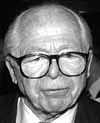
Billy Wilder
12 nominations
3 wins
|
Wins:
The Lost Weekend (1945) - (Best Screenplay
- adaptation)
Sunset Boulevard (1950) - (Best Story and Screenplay
- original)
The Apartment (1960) - (Best Original
Story and Screenplay)
Nominated For:
Ninotchka (1939) - (Best Screenplay - adaptation)
Hold Back the Dawn (1941) - (Best Screenplay - adaptation)
Ball of Fire (1941) - (Best Original Story)
Double Indemnity (1944) - (Best Screenplay -
adaptation)
A Foreign Affair (1948) - (Best Screenplay - adaptation)
Ace in the Hole (1951) - (Best Story
and Screenplay - original)
Sabrina (1954) - (Best Screenplay - adaptation)
Some Like It Hot (1959) - (Best Adapted Screenplay)
The Fortune Cookie (1966) - (Best Original Screenplay)
Note: Wilder had 7 Adapted Screenplay nominations,
4 Original Screenplay nominations, and one Best Original Story
nomination.
Together, Wilder and Charles Brackett are responsible
for a total of 14 screenplay nominations. They co-share 5 screenplay
nominations (from 1939-1950) and two wins: The
Lost Weekend (1945) and
Sunset Boulevard (1950). |
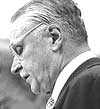
Charles Brackett
7 nominations
3 wins
|
Wins:
The Lost Weekend (1945) - (Best
Screenplay - adaptation)
Sunset Boulevard (1950) - (Best Story and Screenplay
- original)
Titanic (1953) - (Best Story and Screenplay - original)
Nominated For:
Ninotchka (1939) - (Best Screenplay - adaptation)
Hold Back the Dawn (1941) - (Best Screenplay - adaptation)
To Each His Own (1946) - (Best Original Motion Picture
Story)
A Foreign Affair (1948) - (Best Screenplay - adaptation)
Only two of Brackett's nominated
screenplays, To Each His Own (1946) and Titanic (1953)
did not involve his frequent scriptwriting collaborator, Billy
Wilder. |
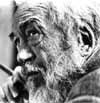
John Huston
8 nominations
1 win
|
Wins:
The Treasure of the Sierra Madre (1948)
(Best Screenplay
- adaptation)
Nominated For:
Dr. Ehrlich's Magic Bullet (1940) - (Best Original Screenplay)
The Maltese Falcon (1941) - (Best Screenplay - adaptation)
Sergeant York (1941) - (Best Original Screenplay)
The Asphalt Jungle (1950) - (Best
Screenplay - adaptation)
The African Queen (1951) - (Best Screenplay - adaptation)
Heaven Knows Mr. Allison (1957) - (Best Adapted Screenplay)
The Man Who Would Be King (1975) - (Best Adapted Screenplay)
|
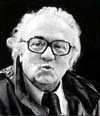
Federico Fellini
8 nominations
0 wins
|
Nominated For: Best Original Screenplay:
Paisan (1946) - awarded 1949
Vitelloni, I (1953) - awarded 1957
La Strada (1954) - awarded 1956
La Dolce Vita (1960) - awarded 1961
8 1/2 (1963) - awarded 1963
Amarcord (1973) - awarded 1975
Nominated For: Best Adapted Screenplay:
Open City (1945) - awarded 1946
Casanova (1976) - awarded 1976
Note: Federico Fellini has the record for
most screenplay nominations for a foreign language film.
Four of his films won Best Foreign Language Film Oscars:
La Strada (1954) in 1956, Nights of Cabiria (1957) in
1957, 8½ (1963) in 1963, and Amarcord (1973) in
1974. |
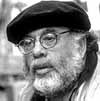
Francis Ford Coppola
5 nominations
3 wins
|
Wins:
Patton (1970) - (Best Original
Screenplay)
The Godfather (1972) - (Best Adapted Screenplay)
The Godfather, Part II (1974) - (Best Adapted Screenplay)
Nominated For:
The Conversation (1974) - (Best
Original Screenplay)
Apocalypse Now (1979) - (Best Adapted Screenplay)
|

Paddy Chayefsky
4 nominations
3 wins
|
Wins:
Marty (1955) - (Best Adapted Screenplay)
The Hospital (1971) - (Best Original Screenplay)
Network (1976) - (Best Original Screenplay)
Nominated For:
The Goddess (1958) - (Best Original Screenplay)
Note: Billy Wilder,
Francis Ford Coppola, Charles Brackett, Woody Allen and Paddy
Chayefsky share the Academy Award record for Oscar writing wins
(3) in all
categories. |

Joel and Ethan Coen
6 nominations
2 wins
|
Wins:
Fargo (1996) - (Best Original Screenplay)
No Country For Old Men (2007) - (Best Adapted Screenplay)
Nominated For:
O Brother, Where Art Thou? (2000) - (Best Adapted Screenplay)
A Serious Man (2009) - (Best Original Screenplay)
True Grit (2010) - (Best Adapted Screenplay)
Bridge of Spies (2015) - (Best Original Screenplay)
|
|

Quentin Tarantino
4 nominations
2 wins
|
Wins:
Pulp Fiction (1994)
Django Unchained (2012)
Nominated For:
Inglourious Basterds (2009)
Once Upon a Time...in Hollywood (2019)
All Best Original Screenplay |

Frances Marion
3 nominations
2 wins |
Wins:
The Big House (1930) (Best Writing Achievement)
The Champ (1931) (Best Original Story)
Nominated For:
The Prizefighter and the Lady (1933) (Best Original Story)
|
|

Ruth Prawer Jhabvala
3 nominations
2 wins
|
Wins:
A Room with a View (1985)
Howards End (1992)
Nominated For:
The Remains of the Day (1993)
All Best Writing, Screenplay Based on Material Previously Produced
or Published
|
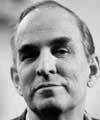
Ingmar Bergman
5 nominations
0 wins
|
Wild Strawberries (1957) - (Best Original
Screenplay) (nom. in 1959)
Through a Glass Darkly (1961) - (Best
Original Screenplay) (nom. in 1962)
Cries & Whispers (1972) - (Best Adapted
Screenplay) (nom. in 1973)
Autumn Sonata (1978) - (Best Original Screenplay)
Fanny & Alexander (1982) - (Best Original
Screenplay)
(nom. in 1983)
|
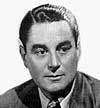
Leo McCarey
4 nominations
0 wins
|
Nominated for: Best Original Story:
Love Affair (1939)
My Favorite Wife (1940)
Going My Way (1944)
Note: McCarey was
also nominated for My Son John (1952) for Best Motion Picture
Story - equivalent to Best Original Screenplay. |
|
